Bee Cups For Thirsty Pollinators
Have you heard about Bee Cups? They're the sustainable, woman-owned business dedicated to saving the bees, one sip at a time.
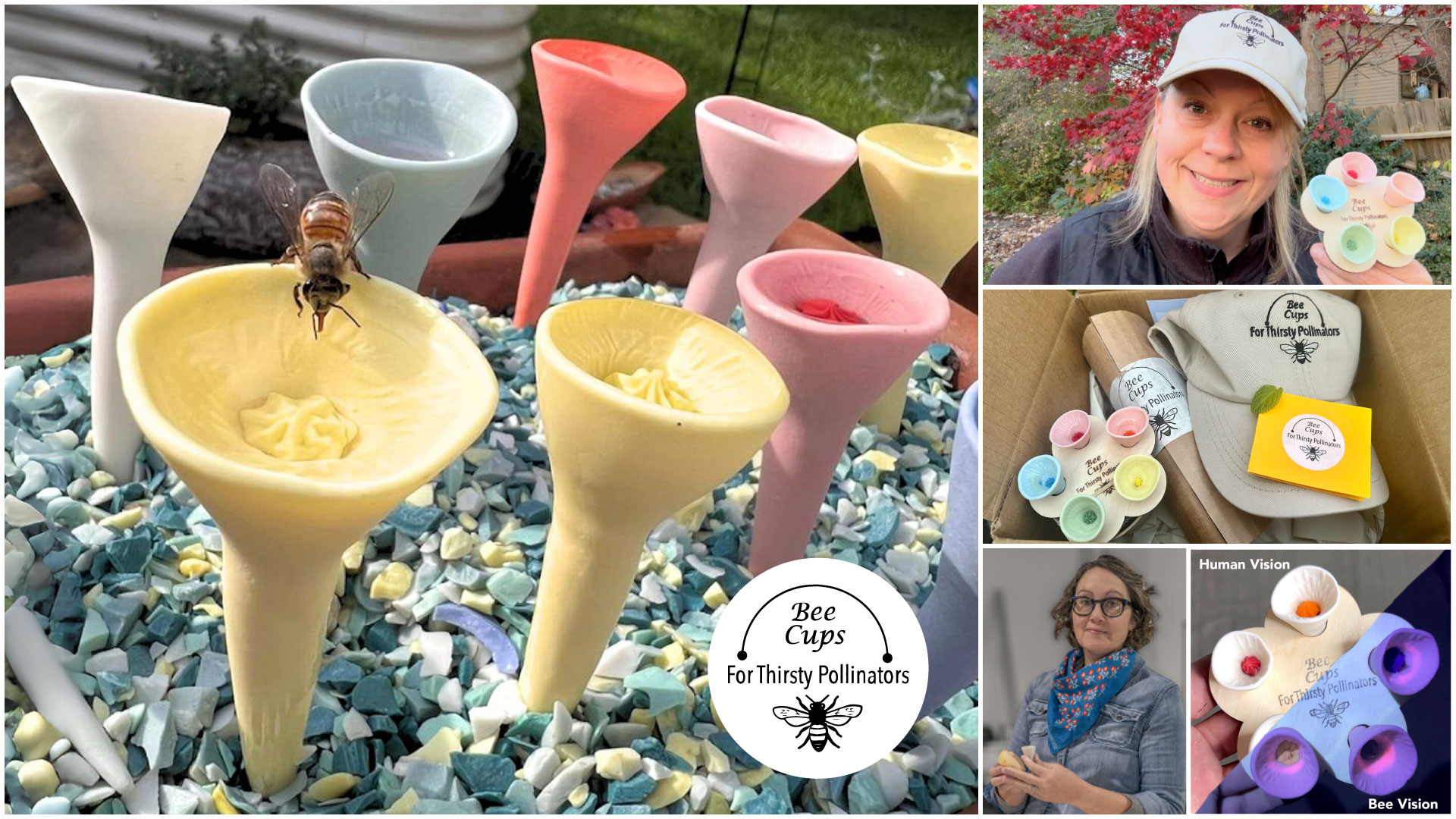

Amy Draiss
Jen Rose is one of the most versatile vendors we’ve met while curating the Gardening Know How line of products for our shop. An ecological artist, Jen creates experiential, environmental art, and has been tapped for projects at various botanical gardens. She is an expert in ceramics, a subject she taught for years at the college level.
Jen is also a scientist who has studied the habits (and even the feet) of bees, and patented an ultraviolet glaze she invented for her popular Bee Cups, available on Amazon – which launched her into yet another career as an entrepreneur.
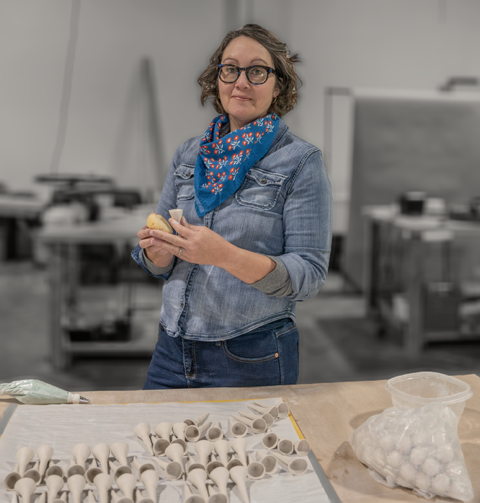
The areas of ecology and human interaction with nature are “right up her alley.” Jen creates “installation” art, creating environments to walk through and experience. So, developing her Bee Cups was a labor of love, and pollinators seem to know it.
Birth of the Bee Cup
Jen has had a deep fascination with the concepts around ceramics, their source materials, and their history, studying such questions as how terracotta can cool walls. On sabbatical before the COVID pandemic, played with the idea of doing outdoor art installations.
While spending time at botanical gardens, Jen had the opportunity to closely observe pollinators and their habits. Based on what she learned, she developed the perfect vessel for attracting bees where they can safely stop, drink the water they need, and rest without drowning.
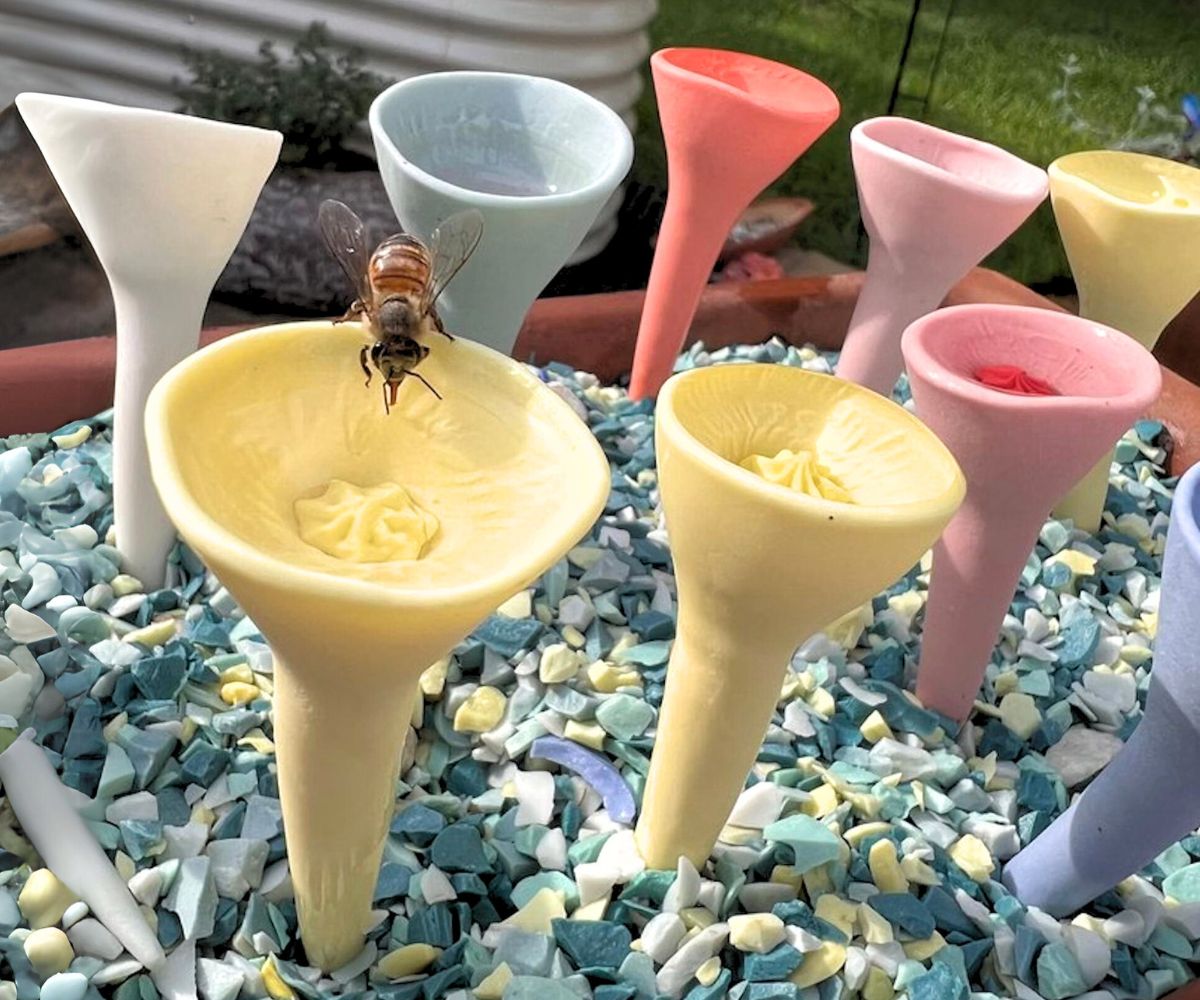
Our own Amy Draiss tried Bee Cups out for herself, and gave them a rave review!
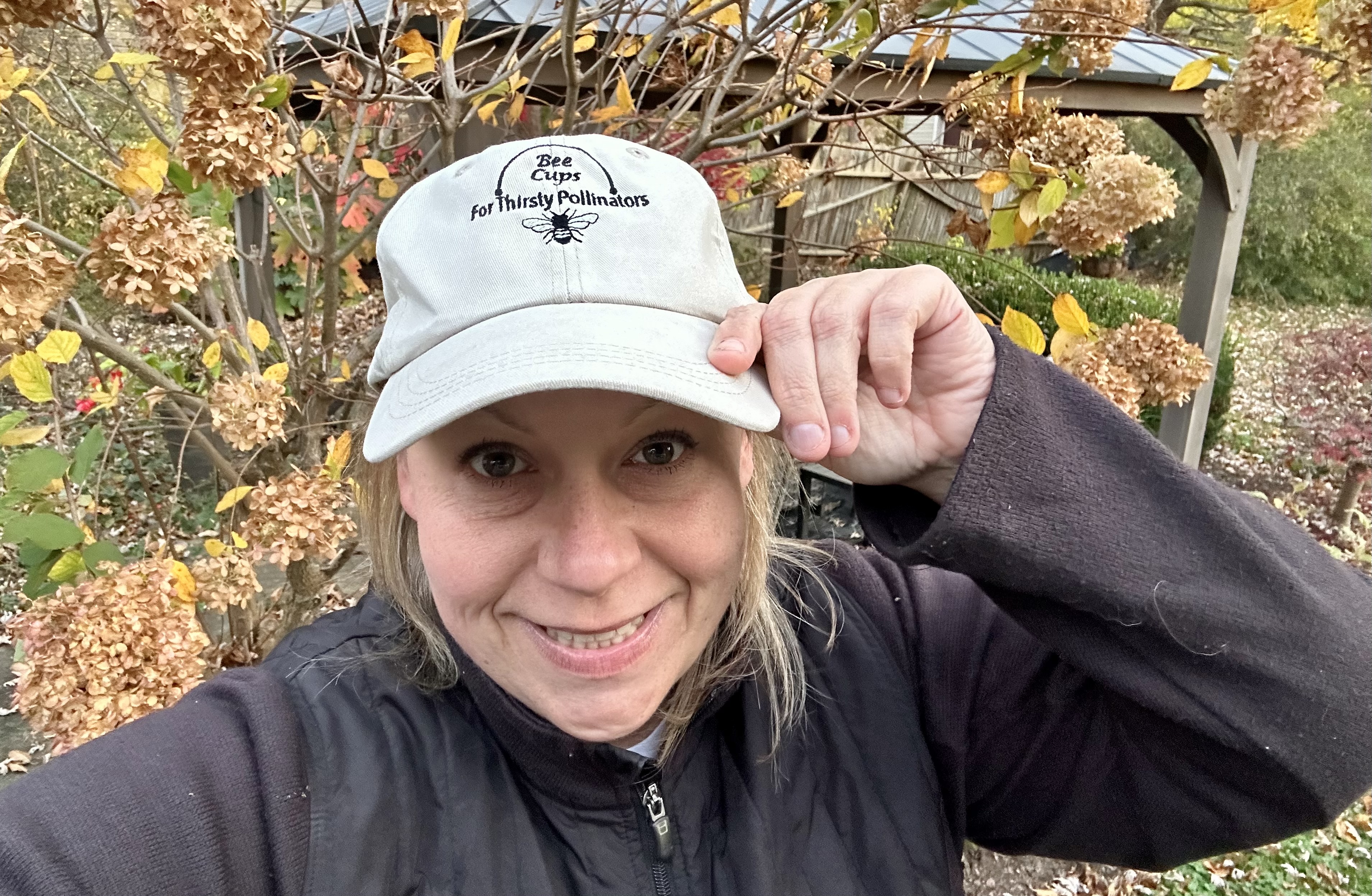
"I absolutely loved adding these Bee Cup watering stations to my garden! Not only are they adorable, but they're also super functional. It's the least I can do to give back to all of the insects that help pollinate my small vegetable garden."
The variations in them reflect the fact that every Bee Cup is made by hand. All the clay colors are mixed in Jen’s studio, primarily by graduates and students working on a degree in ceramics. They use specially crafted tools to create textures so bees can safely cling with their hook-like feet. Bees see very differently from us, so squiggly bumps in the centers of the cups are squirted in, creating patterns attractive to pollinators.
Heated to over 2200 degrees F in a kiln, Jen’s Bee Cups are 100% food-safe, will never fade from sunlight, and will not leach chemicals into the soil or water. Unlike others on the market, these cups contain ZERO plastics.
Sign up for the Gardening Know How newsletter today and receive a free copy of our e-book "How to Grow Delicious Tomatoes".
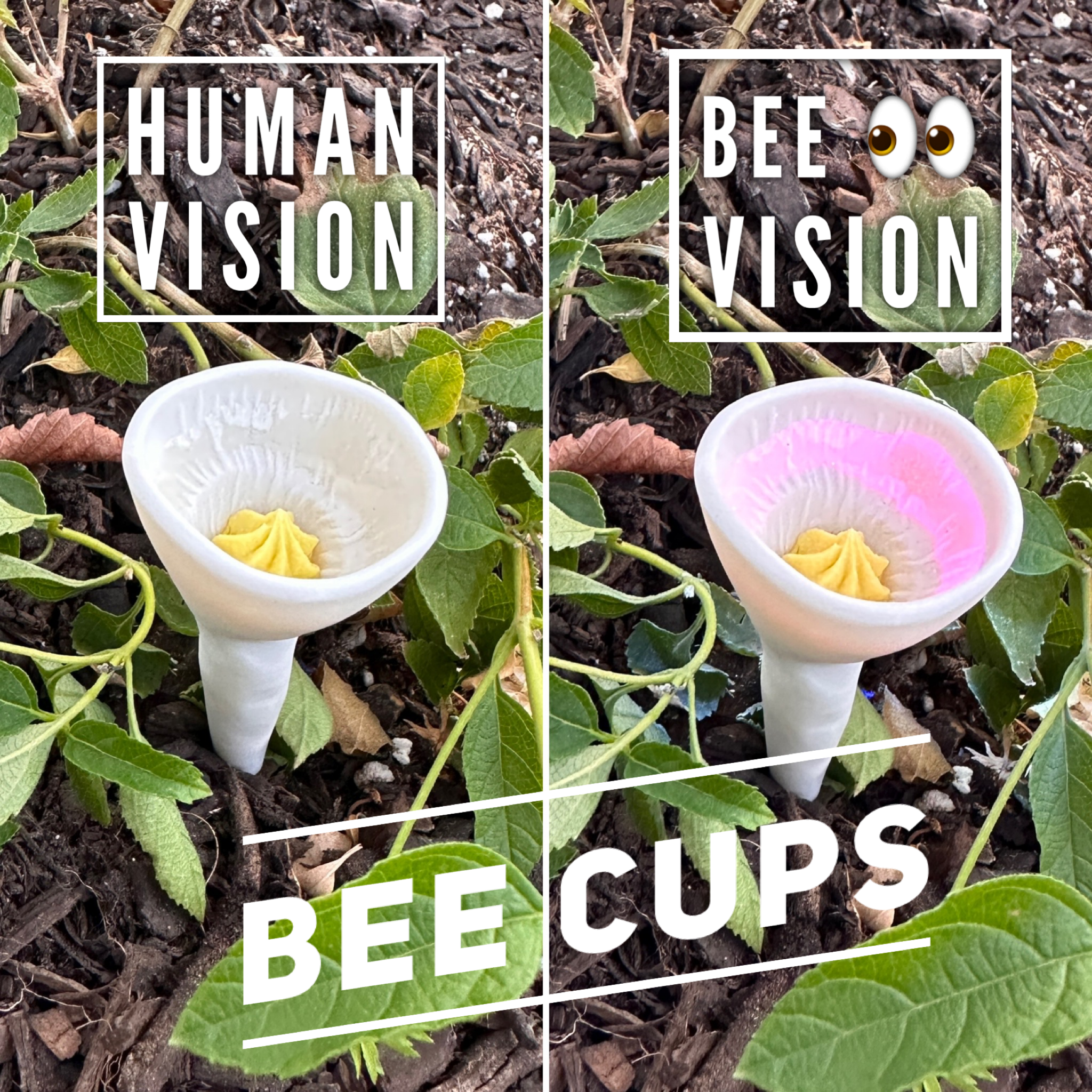
Precise Measures of Water
Jen tells us that each Bee Cup holds only one teaspoon of water. When customers inquire about larger cups, she explains that the cups are designed to hold the least water possible, but still be enough for the bees. Her research revealed that any more water than this breeds mosquitoes within 3 days. The small cups are easy to empty, rinse, and refill, either by hand, garden hoses or sprinkler systems, and Jen proudly mentions she’s never seen a dead bee.
Environmentally Conscious
It is not only Jen Rose’s intention to help and support pollinators. She makes sure that everything they do is earth-friendly. An impressive quote from her website tells us, “At Bee Cups we use innovative processes to close the waste cycle. All of the cracked or unusable Bee Cups are crushed and tumbled. We sell this back to the customers as cover for their potted plants or beds. Our team has lovingly named this 'Pollen.' The pollen has bits of crushed glaze in it so pollinators also love it!”
Stay tuned to our shop for Bee Cups' bee nursery tubes. They’re made from the same great materials and provide cozy nesting spots for many different bee species.

Jen is an ecological artist and first-time business owner who combines ceramics and science to meet the needs of pollinators.
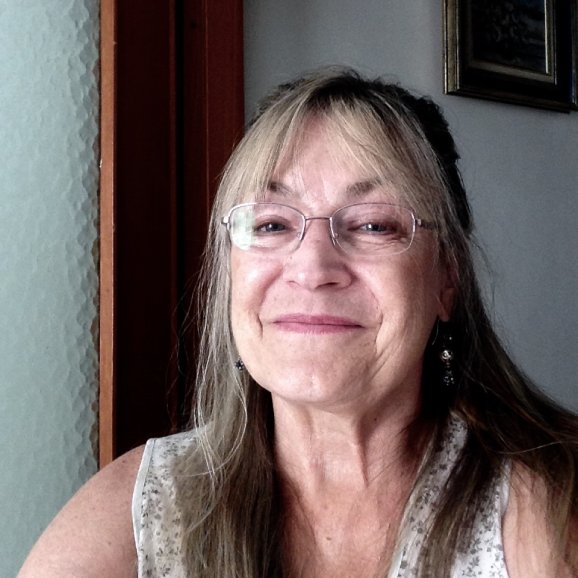
Caroline Bloomfield is Manager of Marketing Communications at Gardening Know How since 2019. A northwest native, she has resided and gardened in multiple zones in the U.S. and is currently at home in Bandon, Oregon. Writing and editing for various publications since 1998, her BA in American Studies from Southern Maine University includes an emphasis in English. She was raised in California by avid gardeners and continues to enjoy the natural world with an appreciation for the concepts of sustainability and organic care for the planet.
- Amy DraissDigital Community Manager